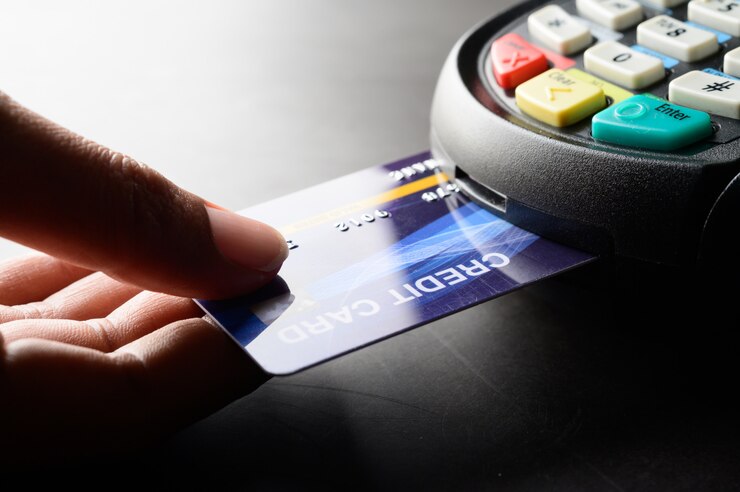Credit cards have become a vital tool for managing day-to-day finances, allowing us to make purchases conveniently and even earn rewards. However, with the increasing reliance on credit cards, there has also been a rise in credit card scams, posing a significant threat to your financial security. From phishing schemes to unauthorized transactions, these scams can leave you with damaged credit and mounting debt.
While protecting yourself from credit card scams should be a priority, there’s another layer of protection you might not have considered: Free Debt Insurance. This no-cost benefit can help safeguard your finances in the event of a scam or other financial emergency. In this post, we’ll explore common types of credit card scams, how to protect yourself, and how Free Debt Insurance can provide valuable protection for your financial well-being.
Common Credit Card Frauds to Be Aware of
Fraudsters are constantly coming up with new ways to trick credit card holders and steal their money or personal information. Here are some of the most common types of credit card scams you should be aware of:
1. Phishing Scams
Phishing scams involve fraudsters sending emails, text messages, or phone calls pretending to be your credit card company or bank. They often ask you to verify personal information, such as your credit card number, Social Security number, or account passwords.
- How to avoid it: Never share personal or financial information over the phone or email unless you’re certain of the legitimacy of the request. Always contact your credit card issuer directly using the phone number on the back of your card to verify any suspicious messages.
2. Skimming Scams
Skimming devices are placed on credit card readers—such as ATMs or gas station pumps—to capture your card information when you swipe. The stolen information is then used to create fake cards or make unauthorized online purchases.
- How to avoid it: Always check card readers for any signs of tampering before inserting your card. Use chip-enabled cards or contactless payments to avoid swiping whenever possible.
3. Account Takeover Scams
In this type of scam, fraudsters gain access to your credit card account and change the account’s mailing address or contact information, effectively taking control of the account and making unauthorized transactions without you noticing right away.
- How to avoid it: Set up account alerts for any changes to your personal information, and monitor your account regularly for suspicious activity.
4. Fake Websites
Fraudsters create fake websites that look like legitimate online stores or service providers to steal your credit card information. Once you enter your payment details, the scammers either charge your card or sell the information to other criminals.
- How to avoid it: Be cautious when shopping online, especially with unfamiliar websites. Look for secure websites with “https” in the URL, and read reviews before making a purchase from a new online store.
5. Charity Scams
Charity scams are especially common during natural disasters or major crises. Fraudsters pose as charitable organizations, soliciting donations through fake websites, phone calls, or emails.
- How to avoid it: Always research charities before donating. Use reputable platforms to make donations, and avoid giving your credit card information over the phone or through unsolicited emails.
How to Protect Yourself from Credit Card Scams
Credit card scams can have a devastating impact on your financial health, but there are several steps you can take to protect yourself:
1. Monitor Your Accounts Regularly
Regularly checking your credit card statements and online accounts is one of the best ways to catch unauthorized transactions early. Many credit card companies offer account alerts for suspicious activity, large purchases, or changes to your account settings. By keeping a close eye on your accounts, you can catch and report fraudulent activity before it escalates.
2. Use Strong, Unique Passwords
Use strong, unique passwords for your online banking and credit card accounts. Avoid using easily guessed information like your birthdate or simple passwords like “password123.” It’s also a good idea to use two-factor authentication (2FA) for an added layer of security.
3. Be Wary of Unsolicited Requests
Whether it’s through email, text, or phone calls, fraudsters often pose as legitimate businesses to trick you into revealing personal information. Always verify unsolicited requests directly with your credit card issuer or bank, and never provide personal information unless you’re sure it’s legitimate.
4. Report Lost or Stolen Cards Immediately
If you lose your credit card or suspect that it has been stolen, report it immediately to your credit card issuer. Most companies offer 24/7 hotlines for reporting lost or stolen cards, and acting quickly can prevent unauthorized transactions.
5. Use Contactless Payments or Mobile Wallets
Instead of swiping your credit card, consider using contactless payments or mobile wallet apps like Apple Pay or Google Pay. These methods offer added security features like encryption and tokenization, reducing the risk of card skimming or unauthorized use.
How Free Debt Insurance Can Protect You After a Credit Card Scam
While taking preventative measures is crucial, even the most vigilant consumers can fall victim to credit card scams. This is where Free Debt Insurance can play a critical role in protecting your financial health. Free Debt Insurance is a form of debt protection that some lenders or credit card issuers offer at no additional cost. It can offer protection in the event of financial difficulties, disability, or death, but it can also be a useful tool if you are the victim of fraud.
Here’s how Free Debt Insurance can help:
1. Debt Coverage in Case of Major Fraud
If a credit card scam leaves you facing significant debt, Free Debt Insurance may cover a portion of that debt in certain qualifying life events, such as death or permanent disability. If your credit card’s fraud protection policies are not covering all of the significant fraudulent charges you are facing, this can help you feel less financially burdened.
2. Payment Protection During Financial Hardship
If you fall victim to a scam and find yourself struggling to keep up with your payments due to job loss or other financial hardship, Free Debt Insurance may help by covering your minimum payments for a set period, giving you time to recover and regain control of your finances.
3. Peace of Mind Without Additional Costs
Unlike paid insurance policies, Free Debt Insurance doesn’t come with monthly premiums, making it a cost-effective way to protect yourself from unexpected financial difficulties. While the coverage might not be as extensive as traditional loan protection, it offers a valuable safety net in the event of a scam or other financial emergency.
How to Access Free Debt Insurance
Not all credit card issuers or lenders offer Free Debt Insurance, but it’s worth asking your provider if it’s available. Here are some steps to find out you:
- Contact your credit card issuer: When opening a new credit card or reviewing the terms of your existing card, ask if Free Debt Insurance is included. Some lenders may offer it as part of your credit agreement.
- Read the fine print: If Free Debt Insurance is available, make sure you understand the coverage terms, including what events trigger the insurance and any limitations or exclusions.
- Combine with other protections: If you want more comprehensive protection, consider combining Free Debt Insurance with other forms of credit protection or debt cancellation plans for added peace of mind.
Conclusion: Protect Yourself from Credit Card Scams and Use Free Debt Insurance for Extra Security
Credit card scams can cause major disruptions to your financial health, but by staying vigilant and taking preventive steps, you can reduce your risk. Additionally, Free Debt Insurance offers a no-cost way to protect yourself in case you do fall victim to a scam or experience financial hardship.
Whether you’re looking to shield yourself from unauthorized charges or ensure that your debts are covered in the event of a major life event, Free Debt Insurance provides a valuable safety net. You can confidently take charge of your financial future by combining it with preventative steps to avoid credit card scams.









